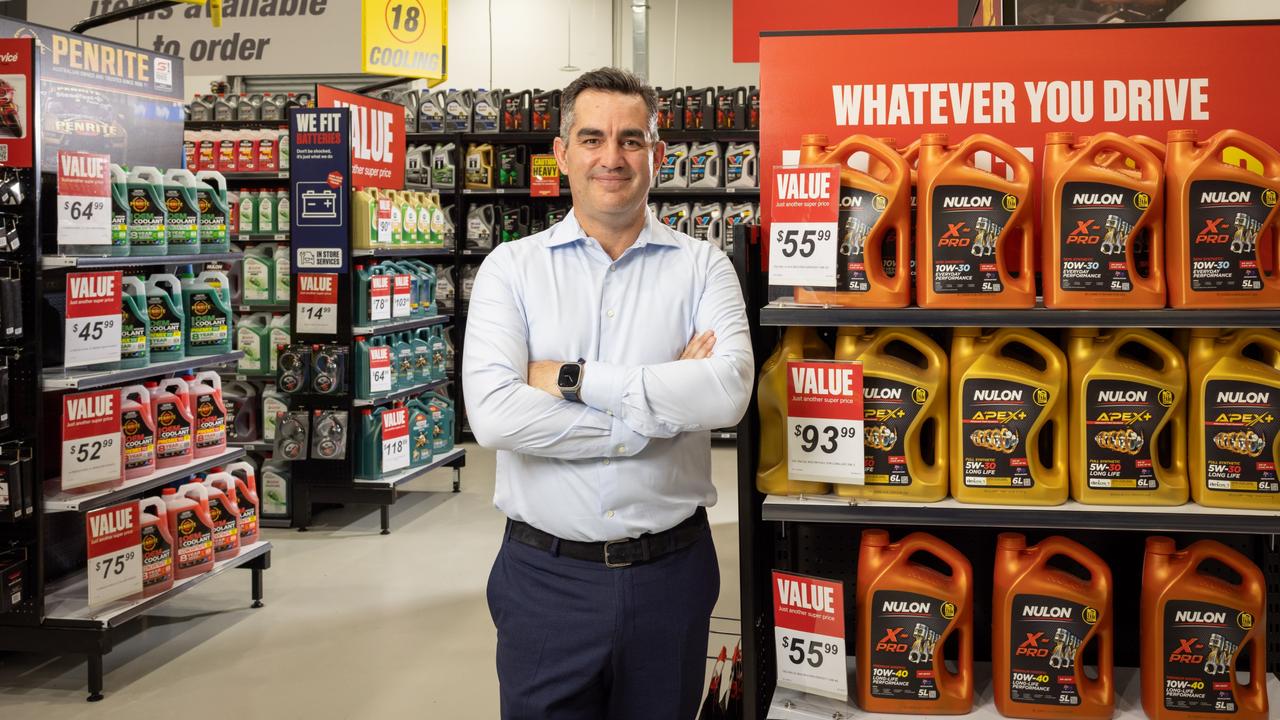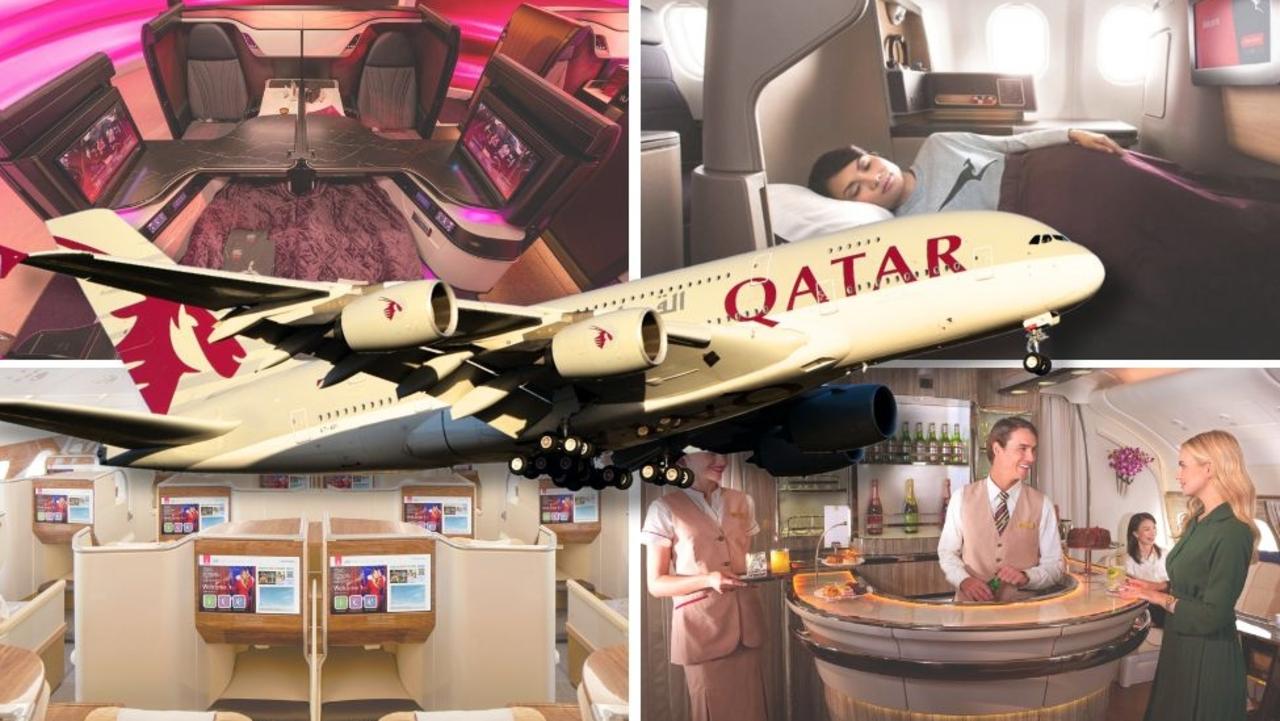Australian casinos losing ground to Asia in the hyper-regulated era: Star, Crown cede VIP gamblers
Australian casinos are losing customers to key Asian competitors including Macau and Singapore as the regulatory response to money laundering filters through to the gaming floor.
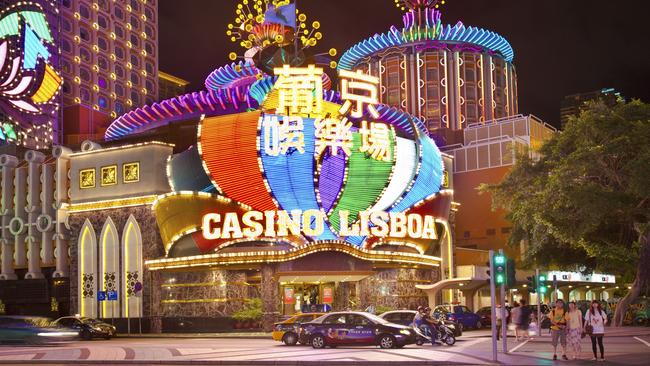
Business
Don't miss out on the headlines from Business. Followed categories will be added to My News.
Australian casinos are losing customers to key Asian competitors including Macau and Singapore as the severe regulatory response to their money laundering and other criminal behaviour clears gaming floors of high rollers who prefer the discretion of other markets.
Macau, long derided as a hotbed of criminal gangs, is now held up as an exemplar of sensible regulation and responsible gambling, while even smaller nations such as Laos and Cambodia are developing more common-sense regulatory regimes compared to Australia, where strict new rules around carded play could actually increase the prevalence of illegal gambling.
“Australia is way tougher than pretty much anywhere in the world now,” said the publisher of Inside Asian Gaming, Andrew Scott.
“The pendulum has swung way too far back in the other direction. Obviously the Australian casinos, particularly Star, and Crown, behaved very poorly and it was very right that there was a lot of action taken against them.
“But I think the new regulations don’t really achieve the stated policy goal. So you’re getting the worst of both worlds in Australia. You’re getting an unviable industry and you’re not really tackling the problems that gambling can create.
“There’s almost no international play in Australia anymore now, that market has been lost. The only international player they get is when somebody from overseas has to come to Australia anyway.”
Victoria has now introduced mandatory carded play requirements for all casino visitors that allows gambling activity to be tracked via an electronic card.
The regulation has been criticised by Crown Resorts chief executive David Tsai who says it creates an uneven playing field because it does not apply to pubs and clubs. There are now restrictions on consecutive hours of play as well as loss limits.
“What’s challenging is that we have these requirements that we imposed on our guests, and they’re there in order to promote player safety,” Mr Tsai told The Australian. “But those same restrictions aren’t imposed elsewhere.”
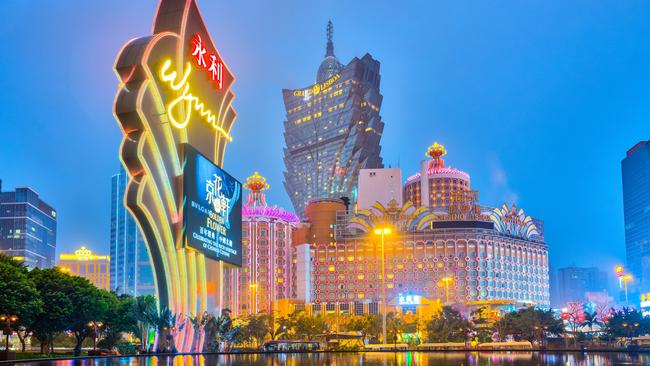
NSW is planning to introduce similar measures after implementing cash limits on new electronic gaming machines.
The former head of the Australian Criminal Intelligence Commission (ACIC) warns that excessive regulation and taxation of Australia’s gambling sector will drive players to illegal operators.
Michael Phelan – who served as CEO of ACIC for five years between 2017 and 2022 – said heavy regulation of the casino industry and greater taxation of online gaming operators was hurting both operators and players, opening the door for organised crime or illegal offshore offerings to fill the void.
Across Asia casinos are big business. The Asian Pacific casino market is worth an estimated $US98.98bn and is expected to reach $US140.4bn by 2030.
Despite its checkered past, Macau is now considered world class in terms of tackling issues such as problem gambling and money laundering.
“Macau has become in many ways, the gold standard of casino gaming in the world,” Mr Scott said. “It’s taken them 20 years to get there and they certainly weren’t there 20 years ago.”
Junkets, which are short gambling trips for wealthy players and have been the conduit for nefarious activities, have effectively been banned in Macau.
“There still are some junkets there but they’re just shadows of their former selves.”
Money laundering emerged as a major issue in Macau when the casino sector was liberalised in the early 2000s and new properties were opened up. The late Macau gambling king Stanley Ho held the casino monopoly in the enclave for four decades until 2022.
“In 2015 when (Chinese leader) Xi Jinping did his crackdown on corruption in mainland China, the Macau government started looking at money laundering and capital flight,” Mr Scott said.
“We always wondered, how much gaming revenue was real gambling and how much of it was people washing money through the system? And my gut instinct was always a third was illegitimate.”
Since then, Macau has significantly tightened anti-money laundering regulations, including increased suspicious transaction reporting.
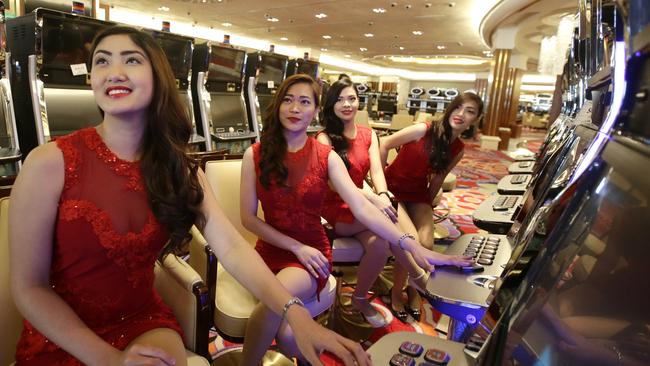
And know-your-customer and anti money laundering compliance is not just a casino phenomenon but adopted by banks and payment facilitators globally.
Macau also has won plaudits for its responsible gambling program.
“There’s a lot of training of staff on recognising people that might have a problem with gambling,” said Mr Scott. “There’s also a recognition by the operators in partnership with the government that they don’t want problem gambling. It’s too much bad press.
“Years ago, you might’ve had a school of thought that said problem gambling was fantastic. They will lose a bunch of money and we make a big profit. But look where it’s led for Star and Crown, it’s led to a very bad situation.”
Macau casinos now have a system of formal certifications for staff depending on their roles.
There are also treatment centres, funded by the casino sector, for people with gambling problems.
“That seems to be a lot more of a sensible approach than what you’ve got in Australia, where all you are doing is banning (people),” he said.
Singapore also imposes an industry levy that helps fund organisations that deal with problem gambling.
Some Asian markets, including Singapore, Korea and Vietnam, continue to restrict access by local citizens to casinos because of fears of seeding gambling addiction. But that policy has in some cases driven the growth of illicit operations.
“In Singapore, you have to pay an entry fee to the casino if you’re a local,” Mr Scott said. “It’s 150 Singapore dollars ($178) for 24 hours which is quite a lot of money.”
Singapore also has what is called a “hard gate” access policy.
“It’s like going through an airport. You’ve got to go through security, they check you out, and if you’re a foreigner you can go to the casino for free. But you have to show your passport and it gets scanned. So they know every single person that’s in that casino because of the hard gate.”

In Korea all 17 casinos bar one are off limits to local residents.
“That one casino, which is in the middle of nowhere and is very difficult to get to, it does as much business as the other 16 put together,” said Mr Scott.
“Koreans are actually banned from gambling worldwide. So if you see a Korean having a bet in Las Vegas, he or she is breaking a Korean law.”
Vietnam tried to ban locals from its casinos but they simply went to illicit cross-border gambling dens, largely defeating the purpose of the policy.
“They now have a trial which allows Vietnamese to play if they have a certain wealth level … All these governments around Asia, are trying to take some sort of sensible approach to the issue.”
Smaller markets such as Cambodia and Laos are still developing their casino regulations. “Cambodia to its credit has tried to pass proper casino laws and Laos has actually passed one and established a regulator. They’re looking at what the others are doing and trying to learn from them.”
More Coverage
Originally published as Australian casinos losing ground to Asia in the hyper-regulated era: Star, Crown cede VIP gamblers




